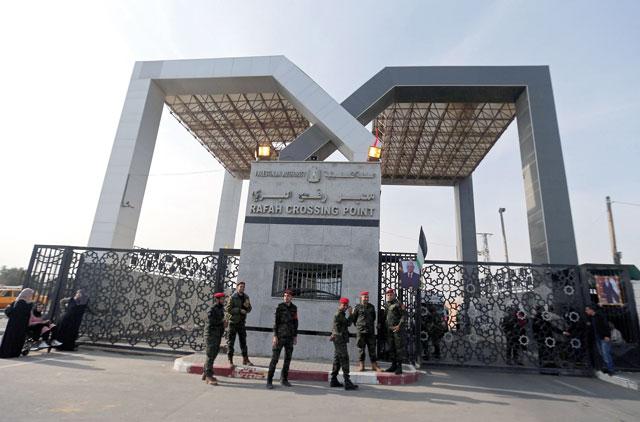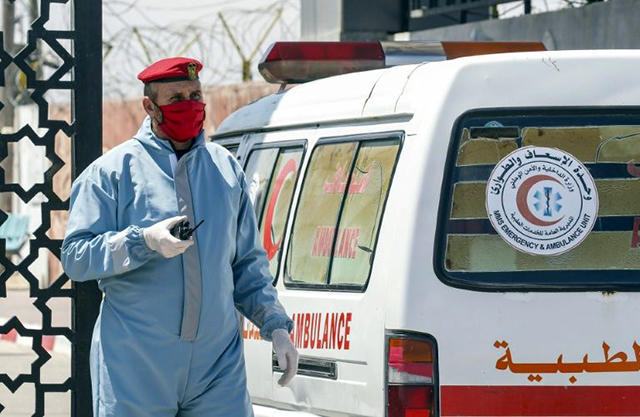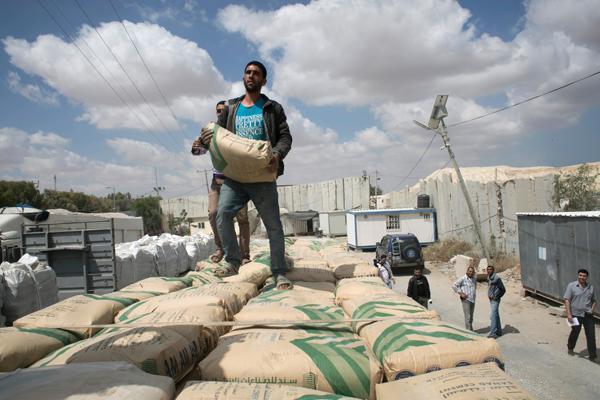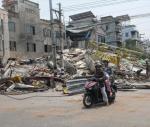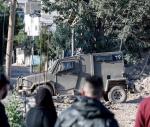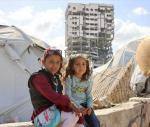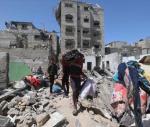You are here
Egypt-Gaza crossing opens for first time in months
By AFP - Aug 11,2020 - Last updated at Aug 11,2020
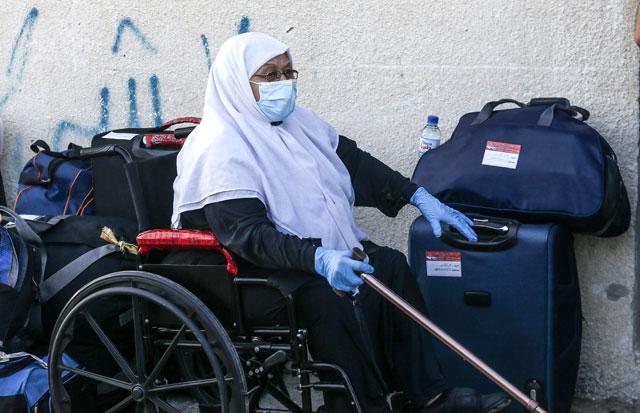
A Palestinian woman waits next to her luggage to leave Rafah border crossing with Egypt after months of closure due to the coronavirus pandemic in the southern Gaza Strip on Tuesday (AFP photo)
RAFAH, Palestinian Territories — The only crossing between Gaza and Egypt opened on Tuesday for 72 hours, allowing people to leave the Palestinian enclave for the first time since the novel coronavirus outbreak began.
The Rafah crossing in southern Gaza was closed in March, as Hamas, the Islamist group that controls the strip, sought to guard against a major virus outbreak in the densely-populated territory with weak health infrastructure.
Rafah was opened for three days in April, but only to allow Gazans stranded abroad to return home. The crossing re-opened for limited two-way movement on Tuesday.
Gaza's interior ministry spokesman Iyad Al Bazam said people who hold foreign passports, foreign residency permits or emergency medical needs "will be allowed to leave".
Hundreds of Gazans had assembled before dawn at a waiting room preparing to exit, AFP reporters said.
Gaza resident Hatem Al Mansi told AFP he needed medical care, but voiced concern about infection risks in Egypt, which has registered 95,000 COVID-19 cases, compared to just 81 in Gaza.
“There is a fear of being infected with COVID-19 in cars or buses in Egypt,” he told AFP. “In Gaza, we don’t have that problem.”
Gaza, under an Israeli-enforced blockade since 2007, was uniquely protected against the coronavirus since access was already tightly controlled before the outbreak.
But the dire economic conditions and a poor healthcare system, partly caused by the blockade, also made Gaza especially vulnerable to the virus.
Hamas has maintained tight restrictions throughout the pandemic.
Anyone returning from Egypt will be placed in a dedicated quarantine facility for three weeks, said the head of infection control at Gaza’s health ministry, Rami Al Abadala.
“Every returnee will be given a mask and will be tested upon entry,” he said.
A large contingent of police, doctors and nurses were stationed at Rafah early on Tuesday to accomodate the returnees.
Related Articles
GAZA — The Egypt-Gaza border opened under control of the Western-backed Palestinian Authority for the first time since 2007 on Saturday, rai
RAFAH, Palestinian Territories — Gaza's Hamas-run government on Monday temporarily re-opened the border crossing with Egypt, shut due
AMMAN — Private cement deliveries to the Gaza Strip resumed on Monday after Israel lifted a six-week ban it imposed over an alleged diversio


